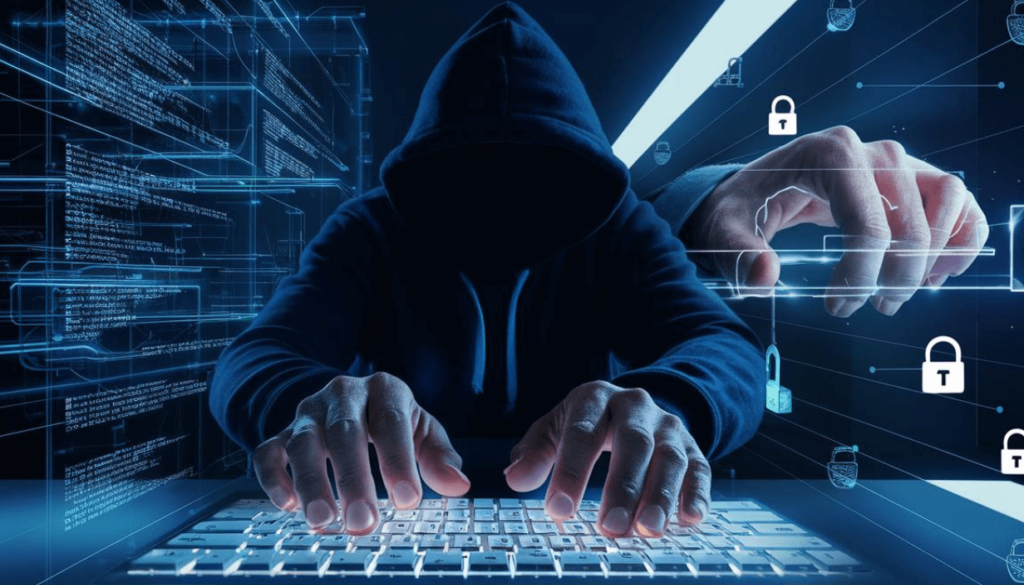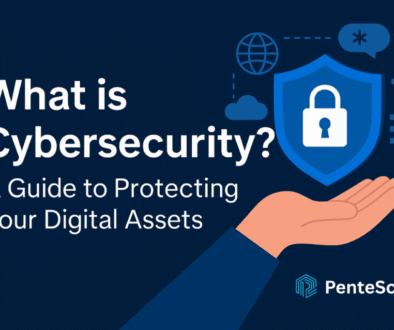Blackhat Hackers: Who They Are and How to Protect Yourself
In this digital age, cyber threats are a growing concern for individuals, businesses, and governments alike. Among the most dangerous threat actors are Blackhat hackers. Understanding who they are and how to protect yourself against their malicious activities is becoming increasingly critical. These malicious actors exploit vulnerabilities in systems and networks for personal gain, often causing significant financial and reputational damage. According to Cybersecurity Ventures, cybercrime is predicted to cost the world $10.5 trillion annually by 2025, a dramatic increase from $3 trillion in 2015. This surge in cybercrime highlights the urgent need for robust cybersecurity measures. This article delves into the world of Blackhat hackers, examining who they are, their techniques, notable incidents, the impacts of their actions, and how you can protect yourself from their malicious activities.
Who Are Blackhat Hackers?
Definition and Origin of the Term
Blackhat hackers, often referred to as “blackhats,” are individuals who break into computer systems and networks with malicious intent. The term originates from Western movies, where the villain typically wore a black hat, symbolizing their evil intentions. Blackhat hackers exploit vulnerabilities for financial gain, personal amusement, or to cause harm.
Motivations Behind Blackhat Hacking
The motivations behind Blackhat hacking are varied but often revolve around financial gain, power, and notoriety. Some Blackhats hack to steal sensitive data, such as credit card information or intellectual property, which they can sell on the dark web. Others aim to disrupt services or damage reputations, sometimes as part of a larger ideological or political agenda. Some Blackhat hackers are also driven by the challenge and thrill of breaking into secure systems.
Comparison with Two Common Hacker Types
- Whitehat Hackers, also known as ethical hackers, use their skills to identify and fix security vulnerabilities. They often work for organizations to improve security measures and prevent breaches.
- Greyhat Hackers: These hackers operate in a legal grey area, sometimes hacking without permission but without malicious intent. They may expose vulnerabilities to pressure organizations to improve security, but they can still cause unintended harm.
Common Techniques Used by Blackhat Hackers
Malware and Viruses
Malware, including viruses, worms, and ransomware, is a common tool used by Blackhat hackers. It can infect systems, steal data, and cause significant disruption. In 2023, the FBI’s Internet Crime Complaint Center (IC3) received 2,825 complaints identified as ransomware, with adjusted losses exceeding $59.6 million (FBI IC3 Report, 2023).
Phishing and Social Engineering
Phishing is a technique where hackers trick individuals into revealing sensitive information, such as passwords or credit card numbers, by masquerading as trustworthy entities. Social engineering involves manipulating people into divulging confidential information. According to the Verizon 2022 Data Breach Investigations Report, phishing was involved in 36% of data breaches.
Exploiting Software Vulnerabilities
Blackhat hackers often exploit software vulnerabilities to gain unauthorized access to systems. These vulnerabilities can arise from coding errors, unpatched software, or misconfigurations. The infamous Equifax breach in 2017, which exposed the personal information of 147 million people, was caused by a failure to patch a known software vulnerability.
High-Profile Blackhat Hacking Incidents
Notable Data Breaches
One of the most significant data breaches occurred in 2013 when Yahoo announced that all three billion user accounts had been compromised in a series of attacks. Similarly, the 2018 Marriott International breach affected approximately 500 million customers, exposing sensitive data such as passport numbers and credit card information.
Financial Sector Attacks
The financial sector is a prime target for Blackhat hackers due to the potential for significant financial gain. In 2016, hackers stole $81 million from the Bangladesh Bank by exploiting weaknesses in the SWIFT payment system. More recently, in 2020, the Finastra attack affected one of the world’s largest fintech companies, leading to widespread disruption.
Government and Infrastructure Targets
Governments and critical infrastructure are also frequent targets. In 2020, the SolarWinds attack compromised multiple U.S. government agencies and numerous private companies. This sophisticated attack involved inserting malicious code into a software update distributed to thousands of customers.
The Impact of Blackhat Hacking
Financial Losses for Individuals and Businesses
The financial impact of Blackhat hacking can be devastating. Businesses face costs related to data breaches, including fines, legal fees, and remediation costs. For individuals, the financial loss can stem from identity theft, fraudulent transactions, and the recovery process. According to IBM’s 2023 Cost of a Data Breach Report, the average data breach cost was $4.45 million.
Privacy and Identity Theft Concerns
Privacy concerns are paramount, as Blackhat hackers often target personal information such as Social Security numbers, addresses, and medical records. This stolen data can be used for identity theft, leading to long-term consequences for the victims. The Federal Trade Commission (FTC) reported that in 2022, there were over 1.1 million reports of identity theft, with losses exceeding $8.8 billion (FTC, 2023).
Psychological Effects on Victims
The psychological effects of being a victim of Blackhat hacking can be profound. Victims may experience stress, anxiety, and a sense of violation. The recovery process can be lengthy and emotionally draining as individuals work to restore their financial standing and personal security.
Protecting Yourself from Blackhat Hackers
Strong Password Practices and Multi-Factor Authentication
Using strong, unique passwords for each account and enabling multi-factor authentication (MFA) can significantly enhance security. MFA requires users to provide two or more verification factors to access an account, making it much harder for hackers to gain unauthorized access.
Keeping Software and Systems Updated
Regularly updating software and systems ensures that known vulnerabilities are patched. Many cyberattacks, including the WannaCry ransomware attack in 2017, exploited unpatched vulnerabilities in outdated systems. Ensuring all software is up-to-date is a crucial defense against blackhat hacking.
Recognizing and Avoiding Phishing Attempts
Educating yourself and your employees about the signs of phishing attempts can prevent successful attacks. Look for suspicious emails, unexpected attachments, and requests for sensitive information. Verification of the sender’s identity before responding to such requests is essential.
Legal Consequences for Blackhat Hackers
Cybercrime Laws and Penalties
Blackhat hackers face severe legal consequences if caught. The Computer Fraud and Abuse Act (CFAA) is a primary tool for prosecuting cybercriminals in the United States. Penalties can include hefty fines and lengthy prison sentences. For example, the hacker responsible for the 2017 WannaCry attack, Marcus Hutchins, faced up to ten years in prison under the CFAA.
International Cooperation in Cybercrime Enforcement
Cybercrime is a global issue, and international cooperation is crucial for effective enforcement. Organizations like Interpol and Europol work to coordinate efforts across borders. The Council of Europe’s Convention on Cybercrime, also known as the Budapest Convention, provides a framework for international collaboration in combating cybercrime.
Challenges in Prosecuting Blackhat Hackers
Prosecuting Blackhat hackers is challenging due to the anonymity of the internet and the complexity of tracing cybercriminals across jurisdictions. Law enforcement agencies often face difficulties gathering sufficient evidence and navigating different legal systems. Despite these challenges, successful prosecutions are increasing as technology and international cooperation improve.
The Future of Cybersecurity
Emerging Technologies in Cyber Defense
Emerging technologies such as blockchain, quantum computing, and advanced encryption methods are shaping the future of cybersecurity. These technologies offer new ways to secure data and systems, making it more difficult for Blackhat hackers to succeed.
The Role of Artificial Intelligence in Hacking and Protection
Artificial intelligence (AI) plays a dual role in cybersecurity. While Blackhat hackers use AI to automate attacks and identify vulnerabilities, cybersecurity professionals leverage AI for threat detection, response, and prevention. AI-powered systems can analyze vast amounts of data in real time, identifying and mitigating threats more effectively than traditional methods.
Predictions for the Evolution of Blackhat Hacking
Blackhat hacking will continue to evolve as technology advances. Cybercriminals will likely adopt more sophisticated techniques like deepfake technology and AI-driven attacks. Staying ahead of these threats requires continuous innovation in cybersecurity practices and technologies.
Conclusion
Blackhat hackers are a significant threat to the digital world. They use their skills to exploit vulnerabilities for malicious purposes, and their motivations range from financial gain to ideological reasons. They employ various techniques, including malware, phishing, and exploiting software vulnerabilities. High-profile incidents, such as the Yahoo data breach and the SolarWinds attack, highlight the severe impact of Blackhat hacking on businesses, individuals, and governments.
The consequences of blackhat hacking are far-reaching, resulting in substantial financial losses, privacy violations, and psychological effects on victims. To protect against these threats, it’s essential to adopt strong password practices, keep software and systems updated, and be vigilant against phishing attempts.
Legal frameworks and international cooperation are crucial in combating Blackhat hacking, but prosecuting these criminals remains challenging. Emerging technologies and the ongoing battle between hackers and defenders will shape the future of cybersecurity. AI and other advanced tools will play a vital role in hacking and protection, making it imperative to stay informed and proactive in cybersecurity measures.
Call to Action
We invite you to subscribe to our monthly newsletter and follow us on our Facebook, X, and Pinterest channels for more insights and updates on cybersecurity trends and best practices. Our blog provides valuable information and resources to help you stay informed and prepared against evolving threats.
Engage with our community to share knowledge, ask questions, and stay connected with industry developments. Visit our About Us page to learn more about who we are and what we do. If you have any questions, please reach out through our contact page. You can also explore our services to discover how we can help enhance your security posture.
Frequently Asked Questions
Blackhat hackers break into systems maliciously, while whitehat hackers, also known as ethical hackers, identify and fix security vulnerabilities to improve system security.
Signs of a hacked computer include unusual activity, slow performance, frequent crashes, and unexpected pop-ups. Monitoring network activity and running antivirus scans can help identify a breach.
No operating system is immune to attacks, but some may be more frequently targeted due to their popularity. For example, Windows systems are often targeted because of their widespread use.
If you suspect a breach, disconnect from the internet, change all passwords, run a comprehensive antivirus scan, and report the incident to the relevant authorities. If necessary, seek professional assistance.
Some Blackhat hackers have reformed and become ethical hackers, using their skills for positive purposes. Rehabilitation programs and employment opportunities in cybersecurity can facilitate this transformation.




